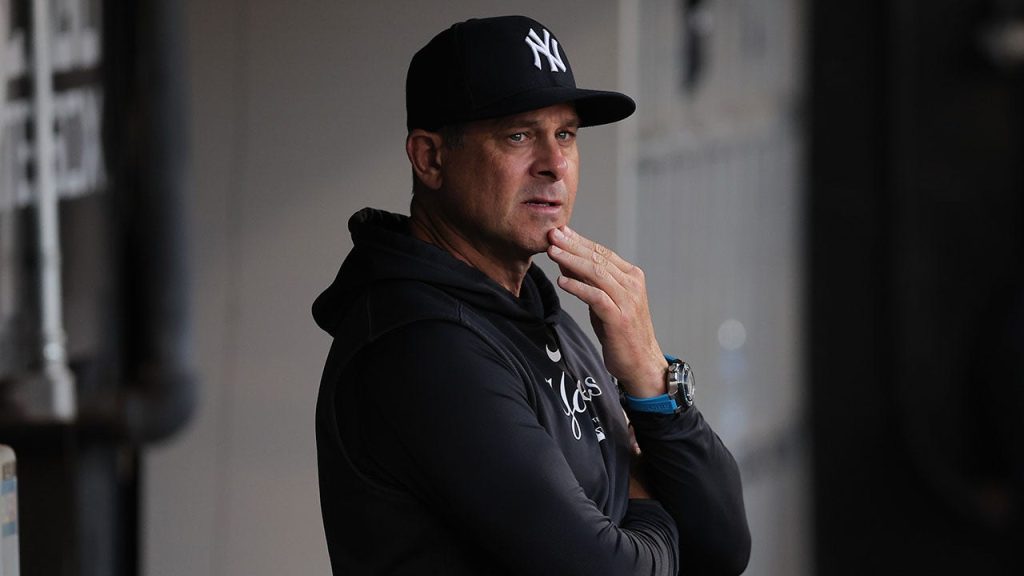Aaron Judge of the New York Yankees has been a dominant force in baseball, with 42 home runs and a .332 batting average. Opposing teams have resorted to intentionally walking him to avoid facing his powerful hitting. Aaron Boone, the Yankees manager, discussed a proposed rule change that would escalate the consequences of intentional walks. The rule would penalize teams by allowing the batter to advance one base on the first intentional walk, two bases on the second, and a triple on the third. Boone agreed with the idea, suggesting that in the biggest moments of the game, batters like Judge should not be avoided.
Judge’s ability to draw intentional walks has sparked conversations about the strategy and fairness of the practice. Boone mentioned that intentionally walking a batter should require skill and precision, much like pitching to them would. Judge has been intentionally walked 14 times this season, and his ability to draw these walks has been a key aspect of his success. In his 2022 AL MVP campaign, he set a record for the most home runs in a single season in the American League with 62. Judge leads Major League Baseball in intentional walks this season, with other standout players like Yordan Alvarez and Rafael Devers following closely behind.
The debate over intentional walks highlights the evolving nature of baseball rules and strategies. Boone’s support for the proposed rule change reflects a growing sentiment that intentional walks should not be a simple way for teams to avoid difficult matchups. The Yankees, currently facing the Chicago White Sox, are navigating the challenges of facing teams that resort to intentional walks as a tactic to counter the power and skill of players like Judge. As Major League Baseball continues to evolve and change, discussions around intentional walks and other strategic elements of the game are likely to continue to shape the sport.
Aaron Judge’s status as a powerful hitter and intentional walk magnet has raised questions about the fairness and effectiveness of the tactic. Some believe that intentionally walking a batter like Judge can impact the flow of the game and potentially deprive fans of seeing exciting showdowns between top players. Advocates for the proposed rule change argue that it would add complexity and strategy to the decision to intentionally walk a batter, ensuring that teams must carefully consider the consequences. As the debate over intentional walks continues, players like Judge will remain at the center of discussions about the future of baseball strategy and rules.
The proposed rule change regarding intentional walks could have significant implications for the way teams approach top hitters like Aaron Judge. By escalating the consequences of intentional walks, the rule would require teams to consider the strategic impact of their decisions in a more nuanced way. The debate over this rule change reflects broader conversations within baseball about how to balance strategy, fairness, and fan engagement. As the sport continues to evolve, discussions around tactics like intentional walks will play a crucial role in shaping the future of the game and ensuring that players like Judge have the opportunity to showcase their skills in key moments.


